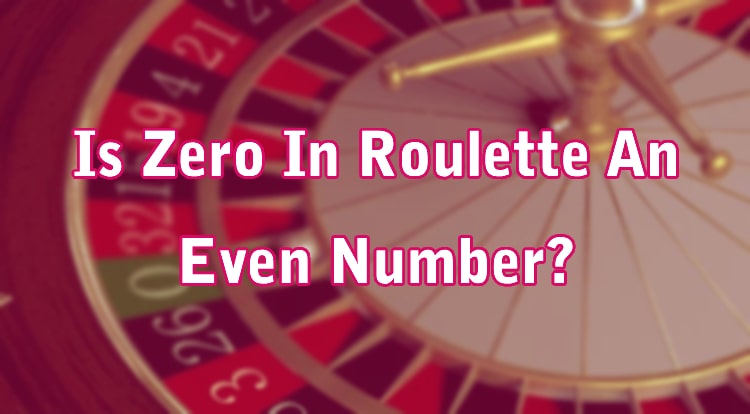
Welcome to Money Reels. Today, we're diving into a curious question: Is zero considered an even number in roulette? While zero doesn't directly contribute to your usual even or odd bets, its role in roulette is both unique and pivotal.
In this post, we'll explore why roulette wheels feature a zero, unpack whether it qualifies as an even number within this context, and examine the odds of the ball landing on this enigmatic green slot. Whether you're new to the spinning wheel or a seasoned player, understanding these nuances can be helpful. Let's get started.
Is 0 Even In Roulette?
In roulette, the zero pocket is a unique feature that plays a crucial role in the game's odds. Unlike other numbers, if the ball lands on zero, all outside bets (like red or black, high or low, even or odd, dozens, and columns) lose. This rule includes bets on even numbers.
Despite zero being classed as an even number in mathematics, in the context of roulette, it doesn't count as an even number, nor does it contribute to any outside bet wins.
This exception is where the casino gains its advantage, often referred to as the "house edge", which we will explain in greater detail in the following section.
Why Is a Zero Used In Roulette?
The inclusion of the zero in roulette is not just a random feature; it is strategically essential for the casino's economics. The zero pocket is coloured green and stands out because it does not fit into any of the usual categories for outside bets - such as red or black, high or low, and even or odd. If the ball lands on zero, all these outside bets lose, which skews the game slightly in favour of the casino.
Consider the even-money bets: theoretically, bets on red or black, odd or even, and high or low would have a 50/50 chance of winning if the roulette wheel had no green zero pocket. However, the zero pocket changes these odds, ensuring they are no longer truly even, thus tilting the balance slightly towards the casino.
This slight edge is how casinos guarantee their profits over time, making the zero a critical element in the game's design.
Odds Of Zero In Roulette
The odds of the ball landing on a zero in roulette vary significantly between the two most common types of roulette wheels: European and American.
A European roulette wheel features one green zero pocket (0), giving the ball a 1 in 37 chance of landing on green. In contrast, an American roulette wheel includes not just one but two zero pockets (0 and 00), which increases the odds of the ball landing on a zero, offering a 2 in 38 chance.
This distinction is crucial because it directly affects the house edge - the casino's built-in advantage. The presence of an additional zero in American roulette increases the house edge, offering the casino a slightly larger advantage than in the European version.
The house edge in European roulette is 2.7%, while in American roulette it is 5.26%.
Understanding these differences can help you choose the game that best suits your preferences.
Conclusion
In summary, the zero pocket in roulette is pivotal in defining the game's dynamics. It's unique because it doesn't count as a win for any outside bets, and it's not considered even despite being an even number mathematically.
This exclusivity gives the casino its house edge, ensuring its profitability over time. Additionally, the odds of landing on zero vary between European and American roulette, with the latter offering higher chances of the ball landing on zero due to its extra zero pocket.
Understanding these aspects can help you navigate the exciting world of roulette with more insight and help you better manage your expectations. Please gamble responsibly.
*All values (Bet Levels, Maximum Wins, etc.) mentioned in relation to this game are subject to change at any time. Game features mentioned may not be available in some jurisdictions.
